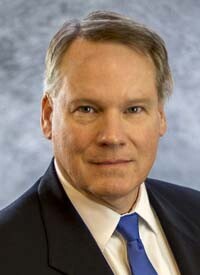
Paul Guppy of the Washington Policy Center believes instead of pushing bad bills that will likely go nowhere, most voters want lawmakers to work together and get things done
Paul Guppy
Washington Policy Center
The Washington 2024 legislative session ended on March 8th. Lawmakers passed hundreds of bills and added about $2 billion in new spending to the 2023-25 budget. We can learn as much, however, about what to expect in the next session from the bills didn’t pass as from those that did.

A number of bad bills failed simply because this is an election year. Next year the more extreme lawmakers will be less reticent about pushing unpopular ideas because they won’t face the public’s wrath for nearly two years, at which point they hope and expect they will no longer be held accountable.
With those factors in mind, here are four bad ideas that lawmakers rejected this year, but which are likely to make a re-appearance in the 2025 session.
SB 5770 – to repeal voter-approved property tax limit. SB 5770 sought to overturn a 2001 voter-approved tax limit that holds annual increases in property tax collections to no more than 1% per year. Democratic leaders announced SB 5770 as one of their “top priorities.” Republicans called it “the worst bill of the session.” In the end leaders recognized the public’s strong negative reaction to repealing popular tax limitation and the bill was pulled from consideration.
HB 2114 – to impose statewide rent control. At the start of the session this bill appeared on its way to easy passage. The dismal record of rent control in other states, however, highlighted the economic damage caused by state-imposed price controls and how they harm access to affordable housing by cutting supply. The bill passed in the House but died later in the Senate Ways and Means Committee.
HB 2030 – to allow prisoners serving time to vote. In an era of growing concern about the integrity of election outcomes introducing the so-called “Free the Vote Act” seemed particularly ill-timed. Given the public’s response, legislative leaders understandably chose not to advance the measure. Yet the bill’s eight sponsors, all from one party, are unlikely to drop the idea entirely. Look for a return of proposed prisoner voting next year.
SJM 8006 – to ban private health insurance. Senate Joint Memorial 8006 called on the federal government to ban private health insurance and require all Americans to join a socialist “universal” health care program. The measure died in the Senate, but like a tough garden weed this highly unpopular idea returns year after year. Expect this perennial pariah to pop up again in 2025.
On a positive note everyone agrees that one failed bill won’t be back. HB 2150 was introduced by Democratic Reps. Kristine Reeves, Steve Tharinger, and Julia Reed. The bill sought to remove Donald Trump’s name from the Washington state ballot. The bill failed, and it is unlikely Trump will be running for office again after this year.
Still, the leadership’s rejection of the bill (they consigned it to a quiet death in the State Government and Tribal Relations Committee) highlights an important area of bipartisan agreement. Nearly all members of both parties hold that lawmakers of one party should not prevent Washingtonians from voting for the other party’s presidential candidate. Any issue that garners a 98% level of agreement is a welcome development.
Hopefully this happy outcome will inspire further efforts to find policy positions on which nearly everyone can agree.
In an era of harsh partisan acrimony and deep social division it is important to look for and build upon common ground. The failure of harmful bills in the last session indicates that such areas of respectful accord are possible and well within reach.
Instead of pushing bad bills that will likely go nowhere, most voters want lawmakers to work together and get things done. That’s a good starting point for shifting the focus to constructive bills based on common sense solutions that will make Washington a better place for everyone.
Paul Guppy is a senior researcher at the Washington Policy Center.
Also read:
- POLL: Why did voters reject all three tax proposals in the April 22 special election?Clark County voters rejected all three tax measures on the April 22 special election ballot, prompting questions about trust, affordability, and communication.
- Opinion: The war on parental rightsNancy Churchill argues that Olympia lawmakers are undermining voter-approved parental rights by rewriting key legislation and silencing dissent.
- Opinion: An Earth Day Lesson – Last year’s biggest environmental victories came from free marketsTodd Myers argues that Earth Day should highlight free-market solutions and grassroots innovation as more effective tools for environmental stewardship than top-down mandates.
- Opinion: Time to limit emergency clauses and give voters a choiceTodd Myers urges the governor to remove emergency clauses from bills that appear intended to block voter input rather than address real emergencies.
- Letter: C-TRAN Board improper meeting conductCamas resident Rick Vermeers criticizes the C-TRAN Board for misusing parliamentary procedure during a controversial vote on light rail.










